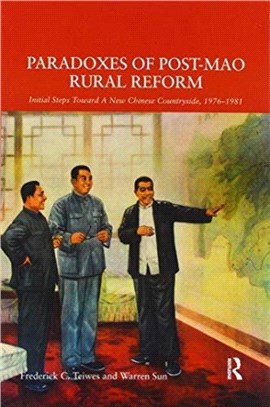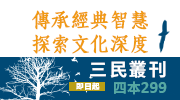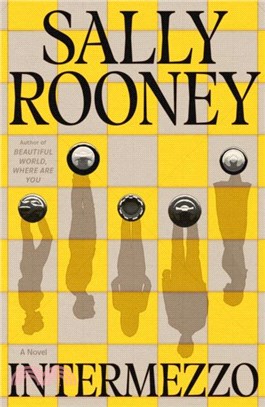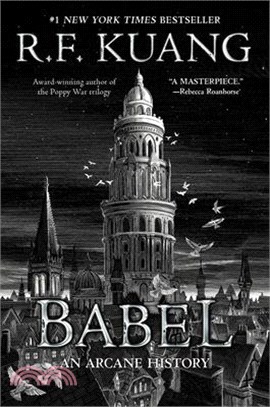Paradoxes of Post-Mao Rural Reform:Initial Steps toward a New Chinese Countryside, 1976-1981
商品資訊
ISBN13:9780367597351
出版社:PBKTYFRL
作者:Frederick C. (University of Sydney Teiwes Australia); Warren (Monash University Sun Australia)
出版日:2020/06/30
裝訂/頁數:平裝/350頁
規格:15.6cm*23.4cm (高/寬)
商品簡介
相關商品
商品簡介
The decollectivization of Chinese agriculture in the early post-Mao period is widely recognized as a critical part of the overall reform program. But the political process leading to this outcome is poorly understood. A number of approaches have dominated the existing literature: 1) a power/policy struggle between Hua Guofeng's alleged neo-Maoists and Deng Xiaoping's reform coalition; 2) the power of the peasants; and 3) the leading role of provincial reformers.
The first has no validity, while second and third must be viewed through more complex lenses. This study provides a new interpretation challenging conventional wisdom. Its key finding is that a game changer emerged in spring 1980 at the time Deng replaced Hua as CCP leader, but the significant change in policy was not a product of any clash between these two leaders.
Instead, Deng endorsed Zhao Ziyang's policy initiative that shifted emphasis away from Hua's pro-peasant policy of increased resources to the countryside, to a pro-state policy that reduced the rural burden on national coffers. To replace the financial resources, policy measures including household farming were implemented with considerable provincial variations. The major unexpected production increases in 1982 confirmed the arrival of decollectivization as the template on the ground.
The dynamics of this policy change has never been adequately explained. Paradoxes of Post-Mao Rural Reform offers a deep empirical study of critical developments involving politics from the highest levels in Beijing to China's villages, and in the process challenges many broader accepted interpretations of the politics of reform. It is essential reading for students and scholars of contemporary Chinese political history.
The first has no validity, while second and third must be viewed through more complex lenses. This study provides a new interpretation challenging conventional wisdom. Its key finding is that a game changer emerged in spring 1980 at the time Deng replaced Hua as CCP leader, but the significant change in policy was not a product of any clash between these two leaders.
Instead, Deng endorsed Zhao Ziyang's policy initiative that shifted emphasis away from Hua's pro-peasant policy of increased resources to the countryside, to a pro-state policy that reduced the rural burden on national coffers. To replace the financial resources, policy measures including household farming were implemented with considerable provincial variations. The major unexpected production increases in 1982 confirmed the arrival of decollectivization as the template on the ground.
The dynamics of this policy change has never been adequately explained. Paradoxes of Post-Mao Rural Reform offers a deep empirical study of critical developments involving politics from the highest levels in Beijing to China's villages, and in the process challenges many broader accepted interpretations of the politics of reform. It is essential reading for students and scholars of contemporary Chinese political history.
主題書展
更多
主題書展
更多書展今日66折
您曾經瀏覽過的商品
購物須知
外文書商品之書封,為出版社提供之樣本。實際出貨商品,以出版社所提供之現有版本為主。部份書籍,因出版社供應狀況特殊,匯率將依實際狀況做調整。
無庫存之商品,在您完成訂單程序之後,將以空運的方式為你下單調貨。為了縮短等待的時間,建議您將外文書與其他商品分開下單,以獲得最快的取貨速度,平均調貨時間為1~2個月。
為了保護您的權益,「三民網路書店」提供會員七日商品鑑賞期(收到商品為起始日)。
若要辦理退貨,請在商品鑑賞期內寄回,且商品必須是全新狀態與完整包裝(商品、附件、發票、隨貨贈品等)否則恕不接受退貨。























![Wicked [Movie Tie-In]:魔法壞女巫電影原著](https://cdnec.sanmin.com.tw/product_images/006/006285284.jpg)
